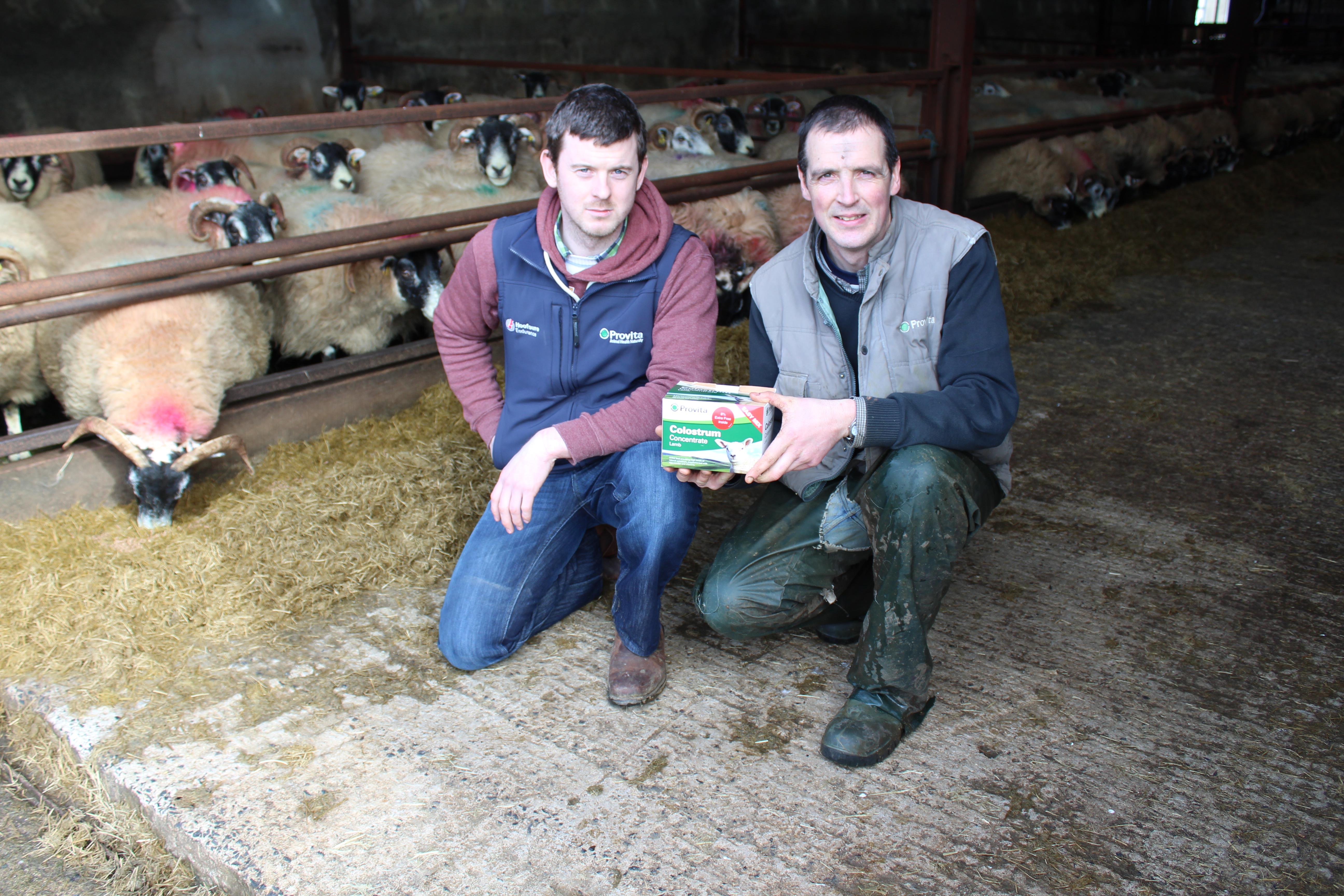March 21st is the projected start to the lambing season on the Slaughtneil farm of Dermot McCullagh. He started housing his flock of Lanark Blackface cross ewes back at the beginning of January.
“All preparations have gone pretty much to plan,” said Dermot.
“The ewes are certainly, looking extremely well at the present time. They were scanned at around 185%. So I am looking forward to a good lambing season ahead.
“But scanning percentages count for very little, unless these can be translated into equally good figures when it comes to the number of lambs actually reared per ewe.”
He continued:
“I run a closed flock with only rams purchased from respected local breeders. We started to performance record the flock five years ago and the results of this approach are now starting to show through. Our lambing percentage is increasing and the mothering ability of our ewe lambs is improving.”
The McCullagh farms rises to 1000 feet above sea level.
“Our aim is to produce high quality Blue Leicester cross Horned ewe lambs for local markets,” said Dermot.
“Many farmers buying our ewe lambs are lambing them as year olds. This means that we must produce a lamb that continues to grow and reach adult weight whilst, in return, passing on these good characteristics to their own lambs.”
Dermot is quick to confirm that lambs must be given the best possible start. This is why he has traditionally offered his new arrivals a feed of Provita Colostrum as soon as possible after birth.
“We strongly believe that the first few days of a lamb’s life are extremely important: hence the importance of quality colostrum,” he said.
“Ewes with lambing difficulties, giving birth to multiple lambs or having weak lambs receive Provita Colostrum. The same principle holds if lambs are born outside and are predisposed to hypothermia.
“Time is scarce in the spring and we want all our lambs to have good daily liveweight gains. The colostrum product is very quick and easy to prepare. We finish all our male lambs off grass: so again, it is vitally important that they receive the best possible start.”
Provita’s Kieran Donnelly was a recent visitor to the Whyte farm.
“Provita Lamb Colostrum has a rich consistency and is easy to mix, which is especially important during the night. In light of this Dermot considers the cost as being inexpensive as it is saving the lives of numerous lambs,” he said
“The current strength of the commercial market makes it all the more important for flockowners, pedigree and commercial, to keep as many lambs as possible alive.”
